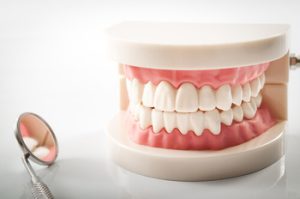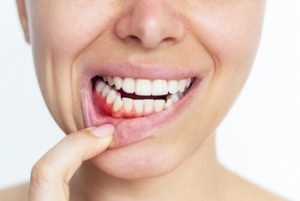Waking up or going through the day with a dry, sticky mouth can be frustrating, especially if you drink plenty of water. If you’ve ever wondered: ‘Why is my mouth dry even though I drink a lot of water?’ You’re not alone. This surprisingly common issue can result from a range of causes, many of which aren’t solved by hydration alone.
In this comprehensive guide, we’ll explore what might be behind your dry mouth symptoms, the role of saliva and salivary glands, and what you can do to restore moisture and comfort.
Understanding Dry Mouth: More Than Just Thirst
Dry mouth, medically known as xerostomia, occurs when your salivary glands don’t produce enough saliva. It’s not always about how much water you drink. It’s about how much saliva your body is able to produce and how well your mouth can stay moist throughout the day.
Saliva is essential not just for keeping your mouth moist but also for protecting your oral health. It helps chew food, aids swallowing, neutralises acids, and washes away food particles. Without enough saliva, you may experience discomfort, an increased risk of oral infections, and even tooth decay.
Dry Mouth Symptoms to Watch For
Dry mouth can present in a variety of ways. Common symptoms include:
- A persistent dry feeling in the mouth or throat
- Cracked lips and a rough tongue
- Difficulty eating or swallowing food
- A burning sensation or dry throat
- Bad breath
- Mouth sores or mouth infections
- Nasal congestion and increased mouth breathing
- A dry feeling on the inner cheeks
- Reduced saliva flow when chewing food
If you notice any of these dry mouth symptoms despite drinking water regularly, it may be time to look beyond dehydration.
Why You Might Have a Dry Mouth Despite Drinking Water
There are several reasons why water alone might not be enough to relieve a dry mouth. Let’s take a closer look at the most common causes of dry mouth.
1. Certain Medications
One of the most common dry mouth causes is the side effect of medication. Drugs used to treat depression, anxiety, high blood pressure, allergies, and even cold medications can reduce saliva production. These medicines may interfere with the body’s ability to stimulate saliva production effectively.
2. Mouth Breathing or Nasal Congestion
Do you often breathe through your mouth, especially while sleeping? Mouth breathing, whether due to a blocked nose, sinus problems, or habit, dries out the oral cavity faster than usual. Nasal congestion from allergies or colds can worsen the issue.
3. Underlying Health Conditions
A number of medical conditions are linked with chronic dry mouth, including:
- Diabetes
- Sjögren’s syndrome
- Parkinson’s disease
- HIV/AIDS
- Stroke or nerve damage in the head and neck
These conditions can disrupt the nerves that control the salivary glands or directly reduce saliva flow.
4. Cancer Treatments
Radiation treatment targeting the head or neck can impair the salivary glands, reducing their function either temporarily or permanently. Similarly, certain chemotherapy drugs may alter saliva composition and flow.
5. Dehydration and Lifestyle Choices
Even if you drink water regularly, you might still be mildly dehydrated if you also consume a lot of caffeine, alcohol, or salty foods. These substances pull fluid from your body and can leave your mouth dry.
The Role of Salivary Glands and Saliva Flow
Your mouth contains several salivary glands that work together to keep your mouth moist. The major ones are located near your ears, under your jaw, and under your tongue. These glands release saliva continuously throughout the day to assist with speaking, eating, and oral hygiene.
If these glands are damaged or underperforming, the saliva flow may not be enough, even if you drink water consistently.
Saliva also contains enzymes and antibacterial agents that prevent mouth infections, help maintain oral health, and minimise the risk of both gum problems and tooth decay.
How Much Saliva Is Enough?
The average adult produces about 0.5 to 1.5 litres of saliva daily. However, the amount can differ based on your age, health, hydration, and other factors. You may not notice reduced saliva flow immediately, but over time, symptoms like cracked lips, difficulty swallowing, and a dry throat can set in.
Risk Factors That Increase Dry Mouth

- Being over 65
- Taking multiple medications
- Living in a dry climate
- Having certain medical treatments
- Poor oral hygiene
- Nerve damage to the head and neck
When Is It Chronic Dry Mouth?
If your symptoms persist for weeks or months, you may be dealing with chronic dry mouth. Unlike occasional dryness, this condition often requires targeted dry mouth treatment and professional evaluation to address underlying causes.
Dry Mouth Remedies and Prevention Tips
Understanding the causes is one thing, but how can you ease the symptoms?
1. Use Saliva Substitutes or Moisturisers
Saliva substitutes can temporarily moisten the mouth. These come in sprays, gels, or rinses and can be especially helpful at night.
2. Stimulate Saliva Production
- Chew sugar-free gum or chew sugarless gum to increase saliva flow
- Try chewing sugar-free gum after meals
- Suck on ice cubes or sugar-free lozenges
- Eat high-water content fruits and vegetables
- Avoid alcohol-based mouthwashes
These methods help stimulate your natural saliva production.
 3. Practise Good Oral Hygiene
3. Practise Good Oral Hygiene
Practising good oral hygiene is important for preventing problems associated with dry mouth. Brush and floss regularly, use fluoride toothpaste, and see your dentist for checkups. If not properly managed, dry mouth can contribute to gum disease and tooth decay.
4. Adjust Your Diet
Avoid spicy or salty foods, coffee, alcohol, and smoking. Instead, drink plenty of water throughout the day (not just in big gulps) and choose water-rich foods like cucumber, watermelon, and oranges. Limit fruit juices high in acidity.
5. Try Natural Dry Mouth Remedies
Some home remedies include:
- Using a humidifier in your bedroom
- Applying lip balm to soothe cracked lips
- Breathing through your nose rather than your mouth
- Avoiding antihistamines unless prescribed
- Drinking small sips of water regularly
The Importance of Oral Health in Managing Dry Mouth
Dry mouth not only causes discomfort but also puts your oral health at risk. Saliva helps control bacterial growth, clear food particles, and neutralise harmful acids. Without it, you’re more vulnerable to plaque buildup, gum inflammation, and mouth infections.
Make sure to:
- Visit your dentist regularly
- Use dental products designed for dry mouth
- Monitor for other symptoms like mouth sores or a burning sensation
- Avoid chewing tobacco and acidic or sugary snacks
How to Keep Your Mouth Moist Throughout the Day
Some simple habits can make a significant difference:
- Keep your mouth moist with water or saliva substitutes
- Increase saliva flow with sugar-free mints or gum
- Use a humidifier while sleeping
- Breathe through your nose
- Carry water and sip frequently
- Apply lip balm to protect cracked lips
- Avoid long stretches without drinking
Frequently Overlooked Triggers of Dry Mouth
While many associate dry mouth with dehydration, there are a range of lesser-known factors that can affect saliva production, even when you drink plenty of water.
- Spicy or Salty Foods
Excessively spicy or salty foods can worsen the dry feeling in your mouth. Although tasty, these can draw moisture away from oral tissues, intensifying symptoms of dry mouth and increasing the risk of mouth sores, especially if the flow of saliva is already reduced.
- Certain Medications and Treatments
Some medical treatments, such as medications for high blood pressure, depression, or allergies, are among the most common causes of dry mouth. These treatments can damage salivary glands or interfere with how much saliva is produced. If you suspect your medication is contributing to dry mouth, be sure to check in with your healthcare provider.
- Use of Tobacco Products
Chewing tobacco and smoking are both known risk factors that contribute to reduced saliva production. Beyond drying out the mouth, these habits also raise the likelihood of developing gum disease, tooth decay, and mouth infections.
- Fungal Infections
A dry environment in the mouth can disrupt its natural defences, making it easier for fungal infections like oral thrush to develop. This can create additional dry mouth symptoms, including a burning sensation or creamy white patches along the inner cheeks or tongue.
How to Support Natural Saliva Flow
If you’re wondering why your mouth is dry even though you drink a lot of water, consider ways to actively increase saliva production rather than simply hydrating. Saliva helps with everything from swallowing food to protecting against tooth decay, so encouraging its flow is essential.
Chew Food Thoroughly
The act of chewing naturally stimulates saliva flow. Including more fibrous fruits and vegetables in your diet, like celery or carrots, can help encourage your salivary glands to work more efficiently.
Chew Sugar-Free or Sugarless Gum
Chewing sugar-free gum (or sugarless gum) can be one of the easiest and most effective dry mouth remedies. It encourages saliva production, helps keep your mouth moist, and offers relief from dry mouth symptoms throughout the day. Choose a brand with xylitol, which also helps protect against cavities.
Try Saliva Substitutes
Saliva substitutes are available over the counter and can mimic natural saliva when your own flow is insufficient. While not a cure, they can help reduce discomfort and support good oral hygiene, particularly during periods of chronic dry mouth.
Suck on Ice Cubes or Sip Fruit Juices
Letting ice cubes melt slowly in the mouth can provide relief from a dry throat and cracked lips. Similarly, small sips of fruit juices throughout the day can offer short-term moisture and stimulate the tear glands and salivary glands, though opt for low-acid options to avoid enamel damage.
Use Lip Balm and Humidifiers
Dry environments can contribute to a dry feeling in the mouth and lips. A simple lip balm helps protect cracked lips while using a humidifier can add moisture to indoor air, benefiting both the mouth and tear glands.
Conclusion: Addressing Dry Mouth at Its Root
If you’ve been wondering: ‘Why is my mouth dry even though I drink a lot of water? It’s likely that something deeper is at play. From medications and health conditions to lifestyle choices and age-related changes, dry mouth often has underlying causes that water alone can’t fix.
The good news? With the right dry mouth treatment, good oral hygiene, and simple daily strategies, you can relieve symptoms and protect your mouth from further damage.
If dry mouth is affecting your day-to-day comfort or making you second-guess your oral health, consider booking a consultation with us at Infinity Dental Care or call (02) 9159 6237. A personalised approach can help uncover the cause and guide you towards long-term relief.
Resources
Cleveland Clinic. (2023). ‘Dry Mouth (Xerostomia)’. Cleveland Clinic, 15 September. Cleveland, OH: Cleveland Clinic. https://my.clevelandclinic.org/health/diseases/10902-dry-mouth-xerostomia
Cherney, K. & McLean, A. (2025). ‘10 Ways to Keep Your Teeth Healthy’. Healthline, 13 May. San Francisco, CA: Healthline Media. https://www.healthline.com/health/dental-and-oral-health/best-practices-for-healthy-teeth
WebMD Editorial Contributor. (2023). ‘What to Know About Tooth Decay Stages’. WebMD, 6 September. New York, NY: WebMD LLC. https://www.webmd.com/oral-health/what-to-know-tooth-decay-stages
Mayo Clinic Staff. (2023). ‘Bad Breath’. Mayo Clinic, 21 December. Rochester, MN: Mayo Foundation for Medical Education and Research. https://www.mayoclinic.org/diseases-conditions/bad-breath/symptoms-causes/syc-20350922



 3. Practise Good Oral Hygiene
3. Practise Good Oral Hygiene